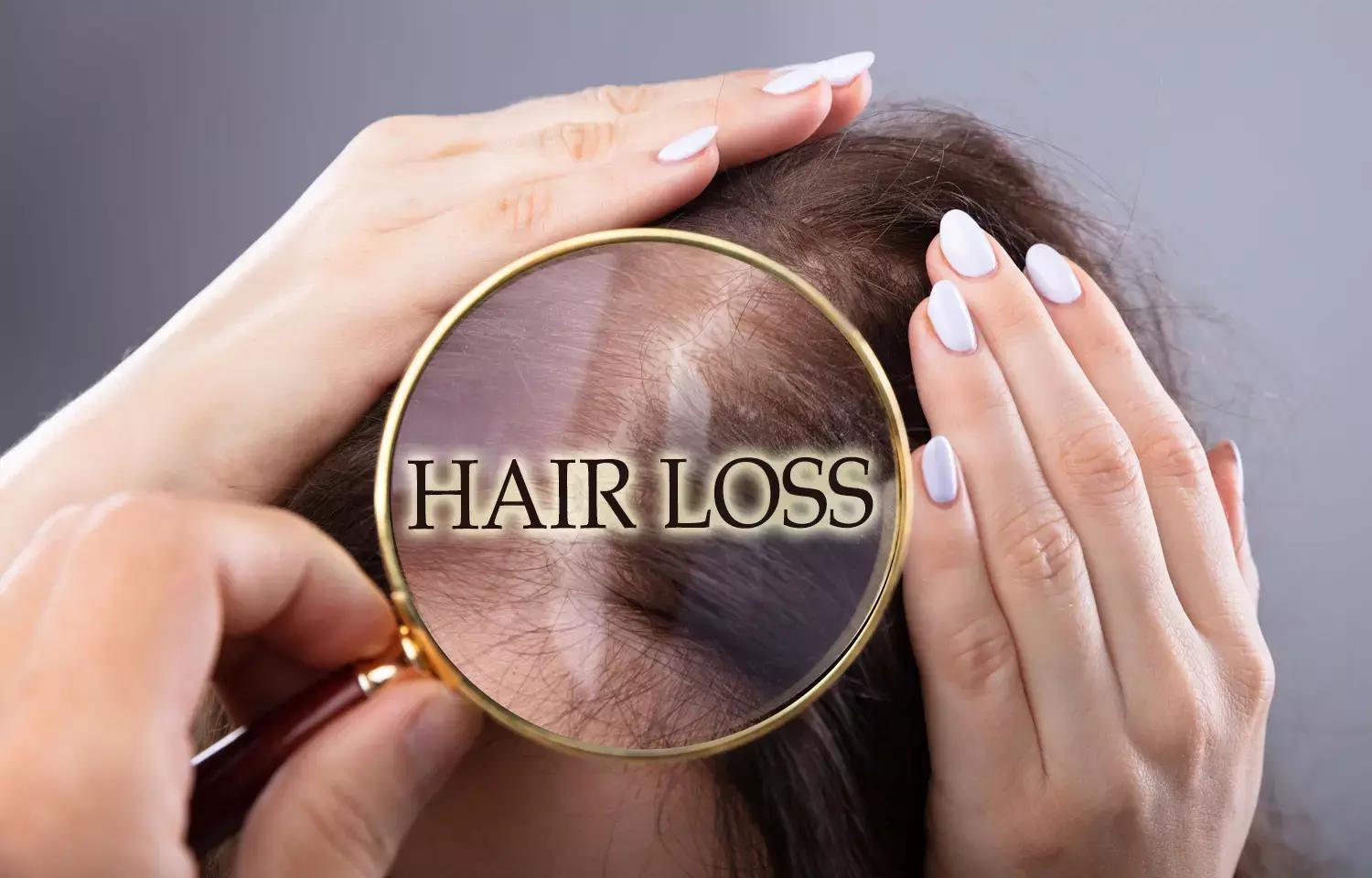Hair Loss Frequent In Acne Patients Treated With Low Dose Isotretinoin Vs High Dose
- byDoctor News Daily Team
- 03 July, 2025
- 0 Comments
- 0 Mins

Canada: Findings from a systematic review suggetsed that in few patients with acne vulgaris treated with low-dose isotretinoin suffered hair loss than patients on a higher dose. The study was published in the Journal of The American Academy of Dermatology International.
The researchers wrote, "<0.5-mg/kg/day isotretinoin dosing results in hair loss at a frequency of 3.2% but ≥0.5-mg/kg/day isotretinoin dosing yields hair loss at a frequency of 5.7%." "Dose reduction role in hair loss frequency is critical to establish because it would allow patients with acne and distressing levels of hair loss to still receive effective therapy."
In the US, over 1 million isotretinoin prescriptions are authorized per year. An understanding of the frequency, dose dependency, timing, and reversibility of hair loss associated with isotretinoin treatment for acne vulgaris could be helpful for guiding dosing regimens and patient counseling. The study was conducted by Katherine McDonald, Department of Dermatology, University of Toronto, Toronto, Ontario, Canada, and colleagues with an objective to assess the frequency of hair loss in patients with acne vulgaris on <0.5 mg/kg/d daily doses of isotretinoin compared to the frequency of hair loss in patients with acne vulgaris on ≥0.5 mg/kg/d daily doses of isotretinoin.
For this purpose, the researchers conducted an online research on July 15, 2020, in accordance with the Preferred Reporting Items for Systematic Reviews and Meta-Analyses guidelines. The review focused on acne vulgaris patients. The most common use of isotretinoin is the treatment of acne vugaris, and the population is typically younger and with fewer comorbidities.
Based on the meta-analysis, the researchers found the following:
· Twenty-two studies reported hair loss with oral isotretinoin treatment.
· A frequency analysis suggested that patients with acne vulgaris on <0.5 mg/kg/d of isotretinoin experienced hair loss at a frequency of 3.2% (n = 18/565) compared with those on ≥0.5 mg/kg/d, who experienced hair loss at a frequency of 5.7% (n = 192/3375).
· Inferential statistics were not possible.
"Physicians should consider counseling patients about telogen effluvium risk prior to drug inititaiton, as is done commonly for other side effects," the authors concluded. "The potential trend of increased hair loss frequency at a higher daily dosing warrants further investigation using higher-quality research."
Reference:
The study titled, "Comparing the frequency of isotretinoin-induced hair loss at <0.5-mg/kg/d versus ≥0.5-mg/kg/d dosing in acne patients: A systematic review," was published in the Journal of The American Academy of Dermatology International.
DOI: https://doi.org/10.1016/j.jdin.2022.01.002
Disclaimer: This website is designed for healthcare professionals and serves solely for informational purposes.
The content provided should not be interpreted as medical advice, diagnosis, treatment recommendations, prescriptions, or endorsements of specific medical practices. It is not a replacement for professional medical consultation or the expertise of a licensed healthcare provider.
Given the ever-evolving nature of medical science, we strive to keep our information accurate and up to date. However, we do not guarantee the completeness or accuracy of the content.
If you come across any inconsistencies, please reach out to us at
admin@doctornewsdaily.com.
We do not support or endorse medical opinions, treatments, or recommendations that contradict the advice of qualified healthcare professionals.
By using this website, you agree to our
Terms of Use,
Privacy Policy, and
Advertisement Policy.
For further details, please review our
Full Disclaimer.
Recent News
Pfizer files lawsuit against Metsera, its Director...
- 02 November, 2025
Health Ministry achieves 3 Guinness World Records...
- 02 November, 2025
Roche gets CE mark for Elecsys Dengue Ag test to d...
- 02 November, 2025
Daily Newsletter
Get all the top stories from Blogs to keep track.


0 Comments
Post a comment
No comments yet. Be the first to comment!